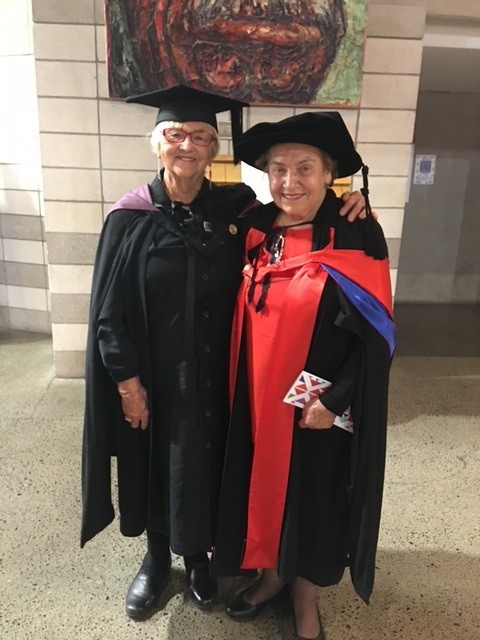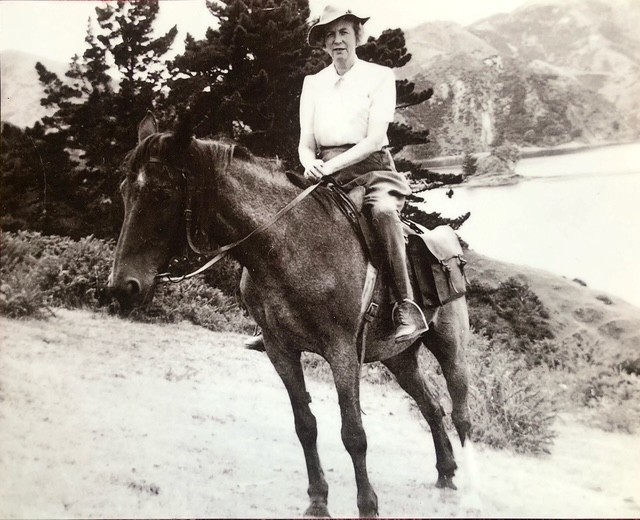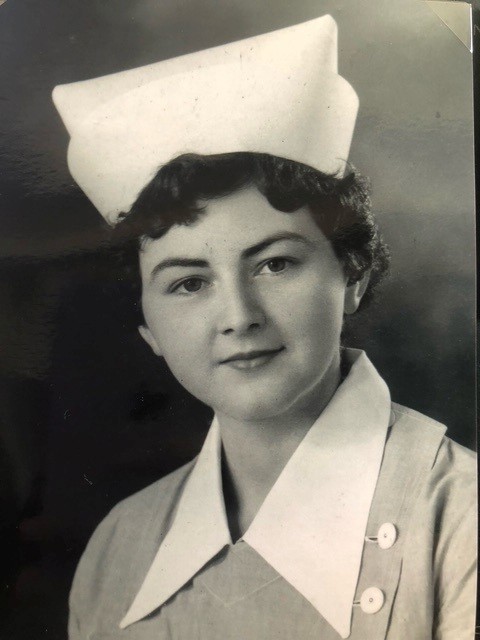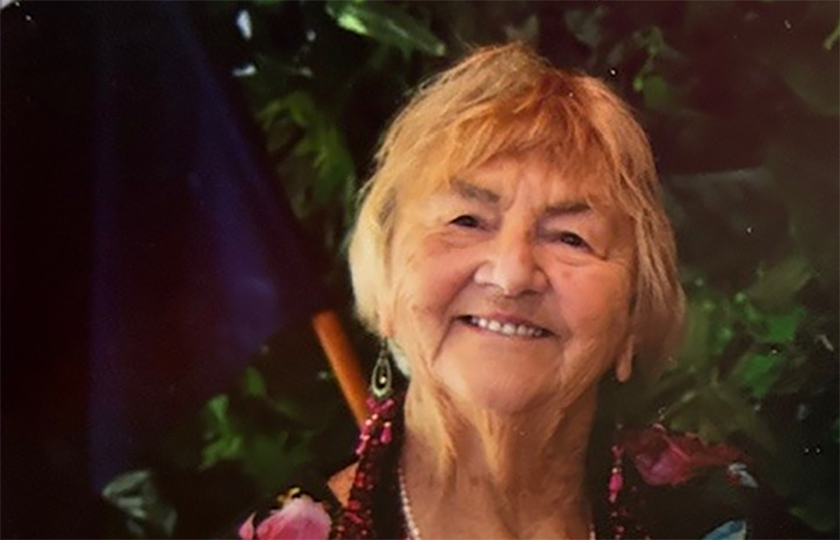Nursing teacher, Benson, turned 87 last week and spoke to Kaitiaki Nursing New Zealand about her life, her profession and the people she calls “diamonds of the future” — her students.
Thousands of these ‘diamonds’ have passed through her classes at Manukau Institute of Technology (MIT) since she started teaching there in 1982.
Nowadays, when Benson heads to hospitals in her part-time teaching role, she continually bumps into people she taught: Stopped for hugs-in-corridors with old students, now working nurses, with stories to share. “It’s gorgeous.”
Benson was born in 1938 and grew up on rugged Great Barrier Island in the outer reaches of the Hauraki Gulf — so distant from the mainland she only made the 12-hour boat trip to Auckland once a year as a kid “to visit the dentist and have ice creams”.

These days, the island, now recognised by its Maori name Aotea, is still rugged and isolated — with barely 1200 residents at the last Census.
From an early age Benson knew “there was another world out there”, across the gulf, and she wanted to reach it. Her mum and aunty had been nurses, and her role model was Mrs Mclean the district nurse who rode to their homestead on horseback: “I wanted to be like her.”
Taking the boat to the mainland
In 1956, the same month she turned 18, she boarded the boat to the city and started training at the Auckland School of Nursing.
She trained for four years, then work and her life with her husband Alan Benson, a teacher who died in 2005, took her to hospital jobs in Te Kuiti and, for 15 years, Dannevirke.

She had many roles at Dannevirke: charge nurse, afternoon and night supervisor, assistant principal nurse — but community nursing teacher too. This, combined with her growing fascination with nursing theory – “the unique function of the nurse” — had given her the teaching bug.
“After teaching the community nurses . . . I felt that I wanted to be involved, I wanted to keep teaching the future nurses because I was so passionate about nursing.”
On their wedding day she told her husband she loved him, she said with a laugh, but that she’d never stop nursing. “He knew that was my passion.”
Benson started at MIT in 1982, “and am still there to this day”. “My main role at the moment is clinical teaching, as an academic liaison nurse, so I work between the clinical setting, at MIT and wherever students are doing their practical experience.”
Benson didn’t know exactly how many students she’d taught over the years, but it was in the thousands.

These students were critical to the profession. “I’m a strong believer in every student nurse taking the profession forward. They will then build their own theory on what is known as nursing theory.”
Benson said any profession such as nursing must have a theoretical base. For nursing that base started with its first theoretician Florence Nightingale, who argued “the nurse was an artist, but the work they did was a science”.
“I can’t not mention our wonderful nursing theorist Irihapeti Ramsden who brought in cultural safety to New Zealand, and that is absolutely the core of my practice.”
The energy to light up a room
The thought of retirement aged 65 drew a laugh from Benson: “Oh no!”
Whatever people had in their life that gave them something to look forward to was a blessing, she said. “I look forward to the next day of giving and sharing, but I also know I need to look after myself.”
Her Master’s thesis was self-care and this idea that nurses must look after themselves, Benson said.
‘I wanted to keep teaching the future nurses because I was so passionate about nursing.’
“We must have the energy to give out to others. I say to my students walking into the door of the hospital, ‘have you got the energy to come in and light up the life of your patients?’.”
This need for self-care was at the core of nursing, she said: because the profession’s demands were huge.
Matching her mahi over decades at MIT was Dr Louise Rummel — an honourary NZNO member — who died on August 21.
The nursing school started in 1980, Benson started there in 1982, and Rummel in 1984, Benson said.
For 41 years they were colleagues and close friends.
“She is a great loss but she lives on with the thousands of students that she has taught. It’s been a beautiful walk together for the last 41 years . . . and I’m grateful for that.”
Benson sighs, and for a moment is silent. Later she talks about how the work of helping others goes on through the next generations of her family: Through her two daughters, one a rural nurse and the other a kindergarten teacher, and her granddaughter, a counsellor.
“I’m surrounded by beautiful people in my family.”





